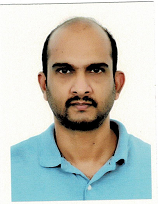High Performance Computer Architecture (CS60003) Spring 2020
This course introduces the principles of
High Performance Computer Architecture. It aims to teach you
the foundational principles of Computer Architecture.
The goal of this course is to give you a
foundation for further study Computer Architecture
and help you to better understand how can you design
primitives to build high performing systems. See the course schedule for details.
Instructors
Teaching Assistants
Course Information
| Prerequisites | We will use basic concepts from Computer Architecture to begin our course.
|
| Lectures | Lecture timings are: Monday 10:00 - 11:00 am Wednesday 08:00 - 10:00 am Thursday 10:00 - 11:00 am However, this semester we will conduct the course online with a mix of live lectures, pre-recorded course videos and online doubt clearing sessions. Please keep and eye on the Schedule page for the latest updates. |
| Textbooks and References | We will be using: 1. Microprocessor Architecture, Jean Loup Baer. 2. HPCA Course, Milos Prvulovic, Georgia Tech. https://www.udacity.com/course/high-performance-computer-architecture--ud007 3. Computer Organization and Design, 4th Ed, D. A. Patterson and J. L. Hennessy. 4. Computer Architecture, Berhooz Parhami. 5. John L. Hennessy and David A. Patterson, Computer Architecture: A Quantitative Approach, Morgan Kaufmann. 6. John Paul Shen and Mikko H. Lipasti, Modern Processor Design: Fundamentals of Superscalar Processors, Tata McGraw-Hill. 7. M. J. Flynn, Computer Architecture: Pipelined and Parallel Processor Design, Narosa Publishing House. 8. Kai Hwang, Advanced Computer Architecture: Parallelism, Scalability, Programmability, McGraw-Hill. |
| Coursework | The coursework for all students consists of
semi-regular quizzes/vivas and take-home assignments. |
| Communication | We will update the course
schedule regularly throughout the course. Live lectures / recordings
Assignment / Scribes / Quizzes
General discussion
|
| Late policy | We will accept the take home assignments/scribes 24
hours late with a 15% penalty. Assignments more than a day
late will not be accepted without a previously approved
extension. Of course, in exceptional circumstances related to personal emergencies, serious illness, wellness concerns, family emergencies, and similar, please make the course staff aware of your situation and we will do our best to find a mutually agreeable solution. |
Grading
Your course grade will be calculated as follows:| Two short Tests | 30% |
| Two long Tests |
40% |
| Assignments |
30% |
Honor code
You are permitted to talk to the course staff and to your fellow
students about any of the problem sets. Any assistance, though,
must be limited to discussion of the problem and sketching general
approaches to a solution. Each student must write out his or her
own solutions to the problem sets. Consulting another student's
solution is prohibited, and submitted solutions may not be copied
from any source. These and any other form of collaboration on
assignments constitute cheating.No collaboration is permitted on quizzes or assignments. All work submitted for the project must properly cite ideas and work that are not those of the students in the group. Simply stated, feel free to discuss problems with each other, but do not cheat. It is not worth it, and you will get caught. In that case, we will be forced to award you no marks for that assignment/quiz/project, take away 50% of your total final marks and you will risk deregistration.
Wellness
If a personal emergency comes up that might impact your work in the class, please let the instructors know via a private chat message (to all the course instructors) so that the course staff can make appropriate arrangements. We are going through unprecedented times and circumstances can sometimes be very overwhelming, and all of us benefit from support during times of struggle. You are not alone.Important Links





